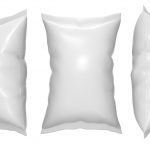
A traditional African remedy found to battle androgen deficiency
Monday, July 30, 2018 by Michelle Simmons
http://www.naturalnewsresearch.com/2018-07-30-a-traditional-african-remedy-found-to-battle-androgen-deficiency.html

The extracts of the traditional African plant known as Ficus asperifolia have been found to potentially treat androgen deficiency, a condition in which the body lacks male sex hormones, such as testosterone. In the study, which was published in the journal BMC Complementary and Alternative Medicine, the androgenic effect of F. asperifolia extracts on normal and castrated immature mice were investigated.
For the study, researchers at the University of Dschang and University of Douala in Cameroon randomly divided 35 normal mice into seven groups. The groups were treated with:
- 10 milliliters per kilogram body weight (mL/kg) of distilled water;
- 10 mL/kg of five percent Tween 80;
- 0.5 milligrams per kilogram (mg/kg) body weight of testosterone;
- 100 mg/kg or 500 mg/kg aqueous extract of F. asperifolia; and
- 100 mg/kg or 500 mg/kg methanolic extract of F. asperifolia.
The immature castrated mice also received the same treatments except for the Tween 80. The treatments were done once a day for four weeks.
At the end of each treatment, the research team measured parameters, such as sexual-organs-to-body weight ratio; levels of protein and cholesterol; and the activity of acid phosphate, to determine the androgenic effects of the F. asperifolia.
The treatments of the aqueous and methanolic extracts of F. asperifolia in normal mice increased their body weight and reproductive organs while decreasing their total testicular cholesterol level. On the other hand, the administration of F. asperifolia extracts in castrated mice increased the weight of their sexual organs, as well as epididymal protein, and prostatic acid phosphatase concentrations.
Moreover, the combined administration of testosterone and plant extracts substantially increased the weight of accessory reproductive organs and epididymal protein levels. The increases in body weight and reproductive organs indicated the effectiveness of the plant extracts in improving androgen deficiency.
Based on these findings, the researchers concluded that the extracts of F. asperifolia possess compounds that exhibit androgen-like activity. Thus, the plant extracts can help in the treatment of androgen deficiency.
Androgens and androgen deficiency
Androgen deficiency affects one out of 200 men below 60 years old. Androgens, such as testosterone (the primary sex hormone in men), are important hormones because they give men their “male” characteristics. Androgens play an important role in male sexual and reproductive function. They are also needed for the development of secondary sexual characteristics in men, such as facial and body hair growth as well as voice change. In addition, they influence bone and muscle development and metabolism.
When the body does not produce enough amounts of androgens, particularly testosterone, it can result in a variety of adverse health effects. Some of the harmful effects of androgen deficiency include the following:
- Breast development or gynecomastia
- Depression
- Hot flushes and sweating
- Increased body fat, particularly around the abdomen
- Lethargy and fatigue
- Loss of body hair
- Reduced amount of ejaculate
- Reduced bone mass, resulting in an increased risk of osteoporosis
- Reduced muscle mass and strength
- Diminished sexual desire
- Weaker erections and orgasms
More ways to prevent androgen deficiency naturally
In addition to F. asperifolia, there are other natural ways to improve androgen deficiency. Testosterone levels can be increased by eating foods rich in vitamin D and zinc, such as tuna, egg yolks, oysters, shellfish, beef, and beans. You can also boost testosterone levels naturally by following an anti-inflammatory diet and doing high-intensity exercises.
Learn more alternative ways of preventing androgen deficiency by going to AlternativeMedicine.news.
Sources include:





